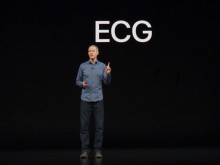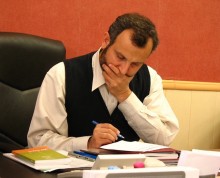Earlier this year, I experienced the power of painful feedback.
Our team of consultants conducted a two-day training session of several parish leadership teams, and I was one of the main presenters. As a part of this exercise, our team would huddle up during breaks and offer feedback on the process. After the first morning I was informed, kindly, that my presentation needed to be tightened up and simplified. It was too meandering, too wordy.
That day, I tried to improve my next segment, but it still fell short. Someone boldly asked in another team feedback session, “Are you aware of the extent to which you need to correct this?” “I guess not!” I responded. Our president then asked me if I thought I could improve for the next day, and then made it clear that if not, he’d need to take over my speaking responsibilities the next day. “Wow, this is serious!” I thought. I was frankly taken aback, and at the same time delighted, by just how direct and candid we were all being. After thinking for a moment — I wasn't sure! —I said I’d like to give correcting the presentation another shot. A colleague agreed to help me rehearse the revised presentation that evening and off we went.
The next morning, I gave a tighter presentation. My final talk that afternoon was even better. And I've since been much more mindful about my speech.
While this perhaps sounds like no big deal, for me it was significant. You see, for years prior to the work I do now, I worked in a context where there was little opportunity for this kind of real-time, high-stakes feedback and support: what we call in our work "peer-to-peer accountability." This largely stemmed from the fact that, while I worked with wonderful people, I wasn’t working with a real team; I often worked in relative isolation from my colleagues. And one result of this was that I didn't know about my speaking deficiencies — and I did a lot of public speaking — until years into my professional life. Years!
As Ken Blanchard notes, feedback is the breakfast of champions. We all need it, and I don't believe we can thrive without it. But tied to good feedback is the context in which we receive it. In other words, are we working in a small and cohesive team? And does that team care enough about the work, and about the team members, to give painful, productive feedback? And do the members concretely support each other as they seek to improve? Critical to my improvement was the time my colleague gave me, despite fatigue after an intense day in a different time zone, letting me rehearse and offering solid feedback. It was a simple, beautiful sacrifice.
What a beautiful and necessary recipe for excellence a small cohesive team is. How many good leaders could become great leaders, how many good efforts great efforts if teamwork and accountability were embraced? How many apostles continue unaware of their deficiencies, or don't have people around them who care enough to point them out and help with overcoming them?















